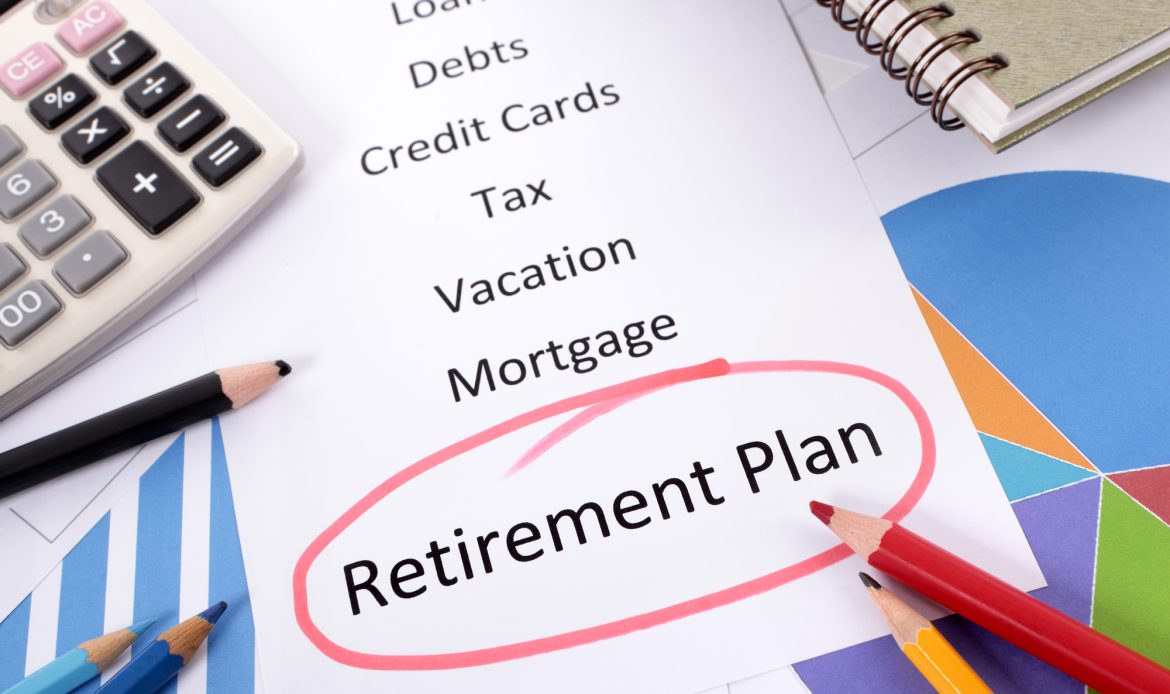Most of us start working in our teenage years, and then we have the next 45-50 years of working for “the Man” to look forward to. That doesn’t sound like fun, does it?
It doesn’t have to be like that! Plenty of smart people have already figured out that proper early retirement planning can make the difference between enjoying your later years and slaving away to make ends meet. Which of those paths are you on?
Are you dreaming of ditching the daily grind before your golden years? Early retirement isn’t just a fantasy; it’s an achievable goal with proper planning and commitment. In this guide, we’ll outline the strategic steps you need to take—from budget adjustments to income strategies—to comfortably retire sooner than most.
Let’s dive in and turn your early retirement dreams into reality!
Key Takeaways
- To retire early, save a lot and cut back on spending. Try living on half your income if you can.
- You need enough savings to last because Medicare starts at 65, and Social Security might not kick in right away.
- Put money into retirement accounts at work like a 401(k), but avoid taking it out early to dodge taxes and penalties.
- It’s smart to pay off debt quickly so you can save more for when you stop working.
- Have different ways to make money so you’re not just counting on savings or one job.

Understanding Early Retirement
Any discussion of early retirement opens up a vision of life beyond the grind well before hitting traditional benchmarks, ie you’re too old to enjoy it! Let’s explore what it really means to hang up your work boots prematurely, and assess if the land of leisure is truly within reach.
What is early retirement age?
Early retirement means stopping work before you turn 65. Many people dream of retiring early and having more time for fun or family. But leaving work early means you need to plan well.
Your savings will need to last longer, maybe up to 20 years or more, if you live a long life. Keep in mind that Americans are living longer than ever, with the average life expectancy to be 83 in 2050, and 88 in 2100.
Planning for health insurance is key because Medicare won’t start until age 65. You might pay for private insurance, which can cost a lot of money without employer help. Next, let’s talk about how the reality of early retirement could affect your plans.
The reality of early retirement
Retiring early sounds great, but it can cost a lot. If you stop working before age 65, you might have to buy health insurance on your own until Medicare kicks in. This can take up to 8.5% of what your family makes every year.
Also, pulling money out of retirement accounts like a traditional IRA or Roth IRA before turning 59 1/2 could lead to a big penalty fee.
Living without a job longer means you need more savings. Some folks live much longer than they expect. That means if you retire young, your money has to last for many years.
People often spend more money in the first few years after they leave work. They are having fun and doing things they didn’t have time for before. So it is really important to plan well and save enough so that your cash doesn’t run out too soon.
Do These 10 Things Right Now to Start Your Early Retirement Planning
Embarking on the journey to early retirement requires meticulous planning and disciplined execution. Dive into the practical steps that pave your way to financial independence, from fine-tuning your budget to strategic investing that aligns with your ambitious goals.
1. Adjusting your current budget
To retire early, you need to save more money. This means changing how you spend your money now.
- Look at what you spend every month. Write down all the things you buy and pay for.
- Find ways to spend less. See if you can cut costs on things like eating out or subscription services.
- Set a goal for saving. Decide how much money from each paycheck should go into your savings.
- Stop using credit cards too much. Pay with cash or a debit card so you don’t owe more than you have.
- Check your bills for mistakes. Sometimes, companies charge too much, and you can save by catching errors.
- Plan meals to save on food costs. Making a list before shopping helps avoid buying things that are not needed.
- Sell stuff you don’t use anymore. Use the extra cash to add to your savings.
- Choose cheaper fun activities. Instead of expensive outings, enjoy parks or free events in town.
- Get lower rates on loans and insurance by shopping around or improving your credit score.
- Do part-time work to make extra money if needed after cutting expenses.
2. Calculating annual retirement spending
After adjusting your current budget, the next crucial step is figuring out how much you’ll spend each year once you retire. This helps you see how big your savings need to be.
- Start by making a list of all your monthly expenses. Include things like rent, food, insurance, and fun activities.
- Add costs that happen once in a while, such as car repairs, gifts, or trips.
- Think about health care costs. They can be big when you retire. Plan for insurance premiums and out-of-pocket expenses.
- Don’t forget about taxes on your retirement money. You might have to pay income taxes on what you take out.
- Plan for inflation. The cost of things goes up over time, so make sure your money does, too.
- Use the rule of 25 to figure out how much total cash you’ll need saved up. Aim to save 25 times what you plan to spend each year.
- Now add 10 – 20% extra to your yearly spending estimate. This gives you wiggle room for surprises or fun stuff.
3. Estimating total savings requirements
Figuring out how much money you need to save for early retirement is a big deal. It’s like planning a long trip and ensuring you have enough gas to get there.
- Start by thinking about your yearly spending. Know what you spend now and guess what you’ll spend when you retire.
- Aim to save 25 times that yearly spending amount. This is your savings goal for retirement.
- Use the 4% rule as a guide. It says you can usually take out 4% of your savings each year when retired.
- Don’t forget about taxes. When you take money out of savings, you might have to pay taxes on it.
- Plan for health care costs, too. These can be big expenses when you’re older.
- Think about where you’ll live. A paid-off house means fewer bills during retirement.
- Remember, Social Security won’t start until at least age 62, so have enough saved up before then.
- Consider other sources of cash. Maybe you’ll rent out a room or sell some things.
- Keep in mind that investments grow over time thanks to compound interest, so start early!
- Ask a financial advisor for help if this seems tricky. They are extremely knowledgeable about things like retirement plans and tax advantages.

4. Investing for growth
Once you know how much you need to save, focus on how your money can grow. Choose investments that might increase in value over time, like stocks or index funds. While saving is important, making smart investment choices can really help your retirement fund get bigger.
Putting your money into low-cost index funds gives you a piece of many different companies’ profits. Since these funds often follow the stock market, they can grow more when the market goes up.
Your goal should be to pick investments that will earn more money over time to support your spending when you retire early.
5. Keeping expenses under control
To retire early, you need to be smart about your spending. Watch where every dollar goes and cut back wherever you can. Eating out less, choosing cheaper entertainment, and shopping for deals all help keep money in your pocket.
Put this saved money into your savings or investment accounts.
Living on half of what you earn is a strong goal for those wanting an early retirement. This means if you make $4,000 a month, try to spend only $2,000 and save the rest. By doing this consistently over time, saving becomes a powerful habit that grows your nest egg quickly.
And with more money saved up, retiring sooner becomes a real possibility!
6. Contributing to workplace retirement plans
Putting money into retirement plans at work is a smart move for saving up to retire early. If you have a job, check if your employer offers plans like a 401(k) or Roth 401(k). These special accounts come with tax perks that help you save more.
Each year, try to put in more money than the last. This helps your savings grow big over time.
Think about how compounding can make your money bigger, too. It’s like planting a tiny seed and watching it grow into a huge tree over many years. The sooner you start putting cash into these accounts, the longer it has time to grow before you retire.
Make sure you pick investment options that match what you want and how much risk feels okay for you.
7. Avoiding early withdrawals from retirement accounts
Taking money out of retirement accounts too soon can cost you. You might have to pay extra taxes and penalties. To keep your savings safe, talk with a financial planner. They know how to use investments without getting hit by taxes or fines.
It’s important because rules for 401(k)s and IRAs are tricky.
Think ahead about taxes when planning for early retirement. Knowing these rules helps you save money and keeps you from taking cash out early. Your investments need to grow so they can support you later on.
Making them last means avoiding touching them until it’s really time to retire.
8. Paying off and avoiding debt
Just as leaving your retirement accounts untouched is important, getting rid of any debt is a smart move. Owing money can slow down your journey to early retirement. Work hard to pay off credit cards, student loans, and other debts.
This will help you save more money for the future.
Once you’re debt-free, avoid taking on new debts that could hurt your plans. Use cash instead of credit whenever possible, and think carefully before buying big things like a car or house.
Stay away from loans with high-interest rates because they make it harder to save money. Remember, every dollar not spent on debt is a dollar that can grow in your retirement savings!
9. Investing early and frequently
Putting money into investments early helps you grow your savings for retirement. If you start young, even small amounts can become big over time due to compound interest. Think about setting up automatic deposits into accounts like Roth IRAs or low-cost index funds each month.
This way, you are always adding to your investment without thinking about it.
Having money put in often means you catch the ups and downs of the market. Over the years, this usually leads to more growth compared to waiting and putting in large sums less frequently.
By doing this as part of your financial planning, you can build a strong nest egg that could let you join the F.I.R.E movement and retire much earlier than most people do.
10. Creating multiple sources of income
Getting more than one way to make money is key for early retirement. It means you don’t just rely on one paycheck or benefit, like social security.
- Save and invest your money. Put some cash into stocks, bonds, or mutual funds. Over time, these can grow and pay out dividends.
- Start a side job. Use your skills or hobbies to make extra money on the side. This could be anything from selling crafts online to doing freelance work.
- Buy property to rent out. Real estate can be a smart investment if you’re ready to be a landlord. The rent you charge can become steady income.
- Open a small business: If you have a good idea, starting your own company could pay off big and bring in more cash.
- Write or create content online: You might start a blog or make videos for streaming platforms that can earn ad revenue over time.
- Use tax breaks wisely: Invest in things like IRAs or health savings accounts where your money grows without getting taxed right away.
- Learn about investing: Talk with financial advisors about how best to use your assets for passive income.

Challenges of Early Retirement
Challenges of Early Retirement: Navigating the path to early retirement can be as complex as it is rewarding, with hurdles such as ensuring affordable health care and adjusting to a smaller income stream.
These obstacles require strategic planning and keen foresight to maintain financial security and enjoy the fruits of your labor during those extra years of freedom.
Health care expenses
Paying for health care can cost a lot if you retire early. You might have to use 8.5% of your money just for private insurance until you turn 65 and can get Medicare. To keep costs down, you could join your partner’s plan or look at group coverage from industry groups.
Another way is to buy your own private insurance. It’s important to find a good plan that doesn’t cost too much but still takes care of your needs.
The impact of withdrawing from your nest egg early
Taking money from your retirement savings too soon can hurt your future. If you pull out cash before age 59 1/2, you might pay a 10 percent penalty. This makes your nest egg smaller right away.
Also, you lose out on interest that could have grown over time. That extra growth can add up to a lot of money for later in life.
Your long-term savings do best when you let them grow without taking any out early. Remember, compounded interest works by earning more as the years go by. Pulling out funds not only costs penalties but also cuts down on how much your money could have earned if it stayed put.
Potential difficulties in finding extra income
Getting extra money can be tough for people who stop working early. They can’t get Social Security benefits right away because they are not old enough. So, they need to find other ways to make money until they reach full retirement age.
But finding a job that pays well and is flexible can be hard.
Some folks start their own businesses or work part-time jobs. Others may try real estate investing or look into making money from hobbies they love. It’s good to have different ways of getting income so you’re not just relying on your savings or investment growth.
Housing expenses and retirement
Finding extra income in retirement can be tough. Paying for your home can also use a big part of your money. Even if you retire early, you may still need to pay off your house. A lot of retired people still have a mortgage.
Nearly half of those aged 60 to 70 owe money on their homes.
You will also spend money on keeping up with the house and paying yearly property taxes. These costs often go up and can take away a lot from what you have saved for enjoying life after work.
It’s smart to plan for these housing expenses so they don’t surprise you later.
Conclusion
You can make your dream of early retirement come true with smart planning and discipline. Save more now, cut costs, and invest wisely to grow your nest egg. Remember to think about health care costs and tax rules as you plan.
Take steps towards your goal every day for a happier tomorrow. Start now to enjoy the freedom of retiring early!

FAQs
1. What is early retirement planning?
Early retirement planning is making plans for your money and life so you can stop working before the usual age.
2. How do I start planning to retire early?
Start by saving money, learning about investments, and using accounts that save on taxes, like individual retirement accounts (IRAs).
3. What should I invest in for early retirement?
Think about mixing different kinds of investments like stocks from the S&P 500 index, bonds, exchange-traded funds (ETFs), and maybe even some alternative assets.
4. Are there special accounts to help me save for retirement without paying too much tax?
Yes! Use tax-advantaged accounts like traditional IRAs or Roth IRAs to keep more of your investment earnings away from taxes.
5. Can an investment advisor help me with my early retirement plan?
Investment advisors can give you advice on how best to save and invest your money so it grows over time for your early retirement goals.
6. Do I need a high income to retire early?
Not always! It’s about smart saving, investing wisely, and sometimes living simply.

